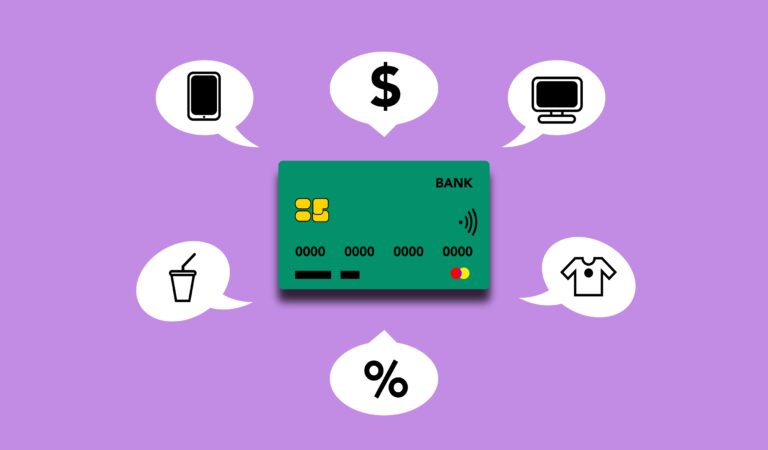In today’s digital age, the need for secure and convenient online payment platforms is more crucial than ever. Whether you’re a small business owner, an avid online shopper, or simply someone who prefers the ease of technology, finding the best online payment platform can make all the difference. With a multitude of options available, this article explores the top online payment platforms that not only prioritize security but also provide a seamless and hassle-free transaction experience. Say goodbye to the worries of compromised financial information and hello to the ease of online payments with these trusted platforms.
The Best Online Payment Platforms for Secure and Convenient Transactions
In today’s digital world, online payment platforms have become an essential part of our lives. Whether you are running an e-commerce business or simply want to make quick and secure transactions, having a reliable online payment platform is crucial. With so many options available, it can be overwhelming to choose the right one. That’s why we have compiled a comprehensive list of the best online payment platforms that offer both security and convenience. These platforms have been carefully evaluated based on their key features, pros and cons, fees, and customer support to help you make an informed decision.
PayPal
As one of the most popular online payment platforms, PayPal has established itself as a reliable and secure option for individuals and businesses alike. With over 300 million active users worldwide, PayPal offers a wide range of features that make online transactions hassle-free. It allows users to link their bank accounts, and credit cards, and even store funds in their PayPal accounts, making it incredibly convenient. Additionally, PayPal’s buyer and seller protection policies ensure that both parties are protected in case of any disputes.
Key Features
- Easy setup and integration with websites and mobile apps
- Multiple payment options including credit cards, bank transfers, and PayPal Credit
- Robust security measures such as encryption and fraud monitoring
- International payment capabilities
Pros and Cons
Pros:
- Widely accepted and recognized
- Excellent buyer and seller protection policies
- User-friendly interface
- Seamless integration with popular e-commerce platforms
Cons:
- High transaction fees for certain businesses
- Limited customer support options
Fees
PayPal charges a transaction fee of 2.9% + $0.30 for domestic payments. International transactions have varying fees depending on the currency and country involved. Additionally, there may be fees for currency conversion and chargebacks.
Customer Support
PayPal offers customer support through email, phone, and an extensive knowledge base. However, some users have reported long wait times and difficulty reaching a representative.
Stripe
Stripe is another top-notch online payment platform that has gained popularity among businesses due to its powerful features and developer-friendly APIs. It offers easy integration with websites and applications, making it a seamless experience for both customers and businesses. Stripe allows businesses to accept payments in multiple currencies and offers robust security measures, including real-time fraud prevention and encryption.
Key Features
- Developer-friendly APIs for easy integration
- Subscription billing and recurring payment options
- Support for multiple payment methods including credit cards, digital wallets, and mobile payments
- Advanced fraud detection and prevention tools
Pros and Cons
Pros:
- Seamless integration with websites and applications
- Secure and reliable payment processing
- Transparent pricing with no setup or monthly fees
- Excellent customer support
Cons:
- Inconsistent payout schedules for some businesses
- Limited support for certain countries and currencies
Fees
Stripe charges a transaction fee of 2.9% + $0.30 for domestic payments. For international payments, the fees vary depending on the region and currency involved. Stripe also offers customized pricing for businesses with high transaction volumes.
Customer Support
Stripe provides customer support through email, live chat, and an extensive knowledge base. Customers have praised their responsive and knowledgeable support team.
Square
Square is a popular choice for small businesses and individuals with its user-friendly interface and convenient features. It offers a range of payment solutions, including the iconic Square Reader which allows businesses to accept card payments through smartphones and tablets. Square also provides other tools such as invoicing, inventory management, and e-commerce solutions, making it a comprehensive platform for small businesses.
Key Features
- Square Reader for easy card payments
- Online payment processing and invoicing
- Inventory management for businesses
- Point-of-sale solutions for physical stores
Pros and Cons
Pros:
- Simple and intuitive user interface
- No monthly fees for individual sellers
- Quick setup and integration
- Accessible customer support
Cons:
- Higher transaction fees for certain businesses
- Limited advanced features for larger enterprises
Fees
Square charges a transaction fee of 2.6% + $0.10 for in-person payments using the Square Reader. Online transactions carry a fee of 2.9% + $0.30. Square also offers customized pricing for businesses with high transaction volumes.
Customer Support
Square provides customer support through phone, email, and live chat. Users have reported positive experiences with their support team.
Google Pay
Google Pay, powered by Google, is a popular digital wallet and online payment platform that offers a convenient and secure way to make transactions. With Google Pay, users can store their payment information and make payments through their smartphones or other devices with just a few clicks. It supports a wide range of payment methods, including credit cards, debit cards, and even loyalty cards, making it a versatile platform for users.
Key Features
- Easy integration with various devices and applications
- Support for contactless payments and NFC technology
- Seamless integration with other Google services
- Enhanced security with encryption and tokenization
Pros and Cons
Pros:
- Wide acceptance and compatibility with various devices
- Convenient payment options for Google service users
- Robust security measures
- Split payment feature for easy bill sharing
Cons:
- Limited availability in certain countries
- Not as widely accepted as PayPal or Stripe
Fees
Google Pay does not charge any transaction fees for making purchases. However, there may be fees for using credit or debit cards associated with the platform.
Customer Support
Google Pay offers customer support through its Help Center and community forums. Users have reported mixed experiences with their support, with some finding it difficult to get a timely response.
Apple Pay
For users in the Apple ecosystem, Apple Pay provides a seamless and secure way to make payments. With Apple Pay, users can add their credit and debit cards to their iPhones, iPads, or Apple Watches, and simply use their device to make payments at physical stores or online. Apple Pay is known for its robust security measures, such as Touch ID and Face ID authentication, as well as tokenization technology that ensures the privacy of users’ payment information.
Key Features
- Integration with the Apple ecosystem
- Touch ID and Face ID authentication for secure payments
- Easy setup and integration with apps and websites
- Privacy-focused with tokenization technology
Pros and Cons
Pros:
- Convenient and secure payment method for Apple users
- Wide acceptance at various retailers and websites
- Fast and contactless payments
- Enhanced privacy and security measures
Cons:
- Limited availability on non-Apple devices
- Some users may find the setup process confusing
Fees
Apple Pay does not charge any additional fees for making purchases. However, standard fees from the user’s credit or debit card issuer may apply.
Customer Support
Apple provides customer support for Apple Pay through their website, phone support, and in-store assistance. Users generally have positive experiences with their support team.
Amazon Pay
As one of the largest e-commerce platforms in the world, Amazon also offers its online payment platform called Amazon Pay. With Amazon Pay, users can make payments on various websites using their Amazon accounts, eliminating the need to enter payment information multiple times. It offers a secure and convenient payment experience, especially for users who are already familiar with Amazon and trust its reputation.
Key Features
- Seamless integration with Amazon accounts
- Fast and easy checkout process
- Buyer Protection and dispute resolution
- Multi-currency support for international transactions
Pros and Cons
Pros:
- Simplified checkout process for Amazon users
- Trusted and secure platform
- Wide acceptance across various online retailers
- Multi-language support for international users
Cons:
- Limited acceptance outside of online retailers
- Some users may not want to link their Amazon accounts with other websites
Fees
Amazon Pay charges a transaction fee of 2.9% + $0.30 for domestic payments. International payments have varying fees depending on the currency and country involved. Additionally, there may be fees for currency conversion and chargebacks.
Customer Support
Amazon provides customer support for Amazon Pay through their website, email, and phone. Users report positive experiences with their customer support team.
Venmo
Venmo, owned by PayPal, has gained popularity among young adults and millennials as a convenient way to split bills and make peer-to-peer payments. With Venmo, users can easily send and receive money from friends and family through a mobile app, making it ideal for casual transactions and social payments. Venmo also offers a social feed feature that allows users to see and interact with their friends’ transactions.
Key Features
- Seamless peer-to-peer payments
- Split bill feature for easy bill sharing
- Social feed to interact with friends’ transactions
- Instant transfer to bank accounts with a small fee
Pros and Cons
Pros:
- User-friendly and intuitive interface
- Social and interactive payment experience
- Quick and easy peer-to-peer transactions
- Split bill feature eliminates the hassle of collecting money
Cons:
- Limited acceptance at merchants compared to other platforms
- Transaction history and social feed may raise privacy concerns for some users
Fees
Venmo does not charge any fees for payments made using a Venmo balance, debit card, or bank account. However, there is a 3% fee for instant transfers to bank accounts and a 1% fee for certain types of transactions, such as payments to authorized merchants.
Customer Support
Venmo provides customer support through its website, email, and social media channels. Users have reported mixed experiences with their customer support team.
Shopify Payments
Shopify Payments is a payment solution specifically designed for businesses using the popular e-commerce platform, Shopify. It offers seamless integration and a wide range of features to help businesses manage their online payments effectively. Shopify Payments allows businesses to accept various payment methods, including credit cards and digital wallets and provides a comprehensive dashboard for easy access to transaction data and analytics.
Key Features
- Integrated payment solution for Shopify users
- Multiple payment methods including credit cards and digital wallets
- Advanced fraud detection and prevention tools
- Comprehensive reporting and analytics dashboard
Pros and Cons
Pros:
- Seamless integration with Shopify stores
- Simplified setup and management of payments
- Robust security measures
- Transparent and competitive pricing
Cons:
- Limited to Shopify users only
- Potential compatibility issues with certain third-party apps
Fees
Shopify Payments charges a transaction fee ranging from 2.4% to 2.9% + $0.30, depending on the pricing plan chosen by the business. There are no additional fees for using Shopify Payments.
Customer Support
Shopify provides customer support for Shopify Payments through their website, live chat, and phone. Users generally have positive experiences with their support team.
Braintree
Braintree, a subsidiary of PayPal, offers a comprehensive online payment platform that caters to businesses of all sizes. It provides a range of features, from easy integration to advanced payment management tools, making it a popular choice for businesses looking for a flexible and scalable solution. Braintree supports a wide variety of payment methods and offers robust security measures to keep transactions safe and secure.
Key Features
- Easy integration with websites and applications
- Support for various payment methods including credit cards and digital wallets
- Advanced fraud detection and prevention tools
- Customizable payment flow and user experience
Pros and Cons
Pros:
- Seamless integration with popular e-commerce platforms
- Extensive support for international payments
- Advanced customization options for businesses
- Transparent and competitive pricing
Cons:
- Some users may find the setup process complex
- Certain features may require additional development resources
Fees
Braintree charges a transaction fee of 2.9% + $0.30 for domestic payments. International transactions have varying fees depending on the currency and country involved. Additionally, there may be fees for currency conversion and chargebacks. Braintree also offers customized pricing for high-volume businesses.
Customer Support
Braintree provides customer support through its website, email, and phone. Users generally have positive experiences with their support team.
Authorize.Net
Authorize.Net is a long-standing player in the online payment industry, offering a robust and reliable payment gateway for businesses of all sizes. It allows businesses to accept payments through various channels, including websites, mobile apps, and even physical terminals. Authorize.Net provides advanced fraud detection tools and customizable payment forms for businesses to enhance their security and create a seamless payment experience for their customers.
Key Features
- Flexible integration options for websites, mobile apps, and more
- Support for multiple payment methods including credit cards and e-checks
- Advanced fraud detection and prevention tools
- Customizable payment forms and secure customer data management
Pros and Cons
Pros:
- Established and reliable payment gateway
- Wide range of integration options for businesses
- Advanced security features for fraud prevention
- Dedicated customer support
Cons:
- Potential compatibility issues with certain third-party platforms
- Some users may find the pricing structure complex
Fees
Authorize.Net charges a setup fee of $49 and a monthly gateway fee of $25. Transaction fees vary depending on the pricing plan chosen by the business.
Customer Support
Authorize.Net offers customer support through phone, email, and an extensive knowledge base. Users generally have positive experiences with their support team.
In conclusion, choosing the right online payment platform is essential for secure and convenient transactions. PayPal, Stripe, Square, Google Pay, Apple Pay, Amazon Pay, Venmo, Shopify Payments, Braintree, and Authorize.Net are among the best options available, each offering unique features and benefits. By considering their key features, pros and cons, fees, and customer support, you can select the online payment platform that best meets your needs and ensures a seamless payment experience. Whether you are a business owner or an individual looking for a reliable way to make online payments, these platforms are trusted and widely used, making them the ideal choices for your online transactions.




